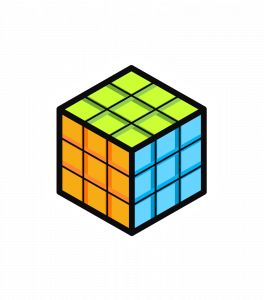Firm Up Your Foundational BA Skills
FOBAᵀᴹ takes you through a project in a simulated enterprise environment.
Earn 36 IIBA PD/CDUs to help you meet the application or renewal requirements for your CCBA or CBAP certification.
This is a hands-on project-based course where you'll produce the core BA deliverables your team needs to enhance an existing digital product in an enterprise environment.
FOBAᵀᴹ is a 12-week practicum where you'll produce BA deliverables including:
- Standard BPMN-based process model as part of elicitation.
- User Stories and Use Cases as part of elaboration.
- Wireframes and Screen Specifications as part of elaboration.
- Standard UML-based data model as part of business rules analysis.
On This Page

Henriette Nitu
Senior Business Analyst
What You'll Learn
You'll learn the foundational business analysis skills you need to connect business needs to IT solutions in support of all your stakeholders.
The project will give you the pre-project input you need to elicit and elaborate the user needs down to the level of detail required by your technical stakeholders.
Pre-Project Discovery
You'll be given pre-project deliverables produced by a senior business analyst as inputs for your elicitation and elaboration work. You'll use these deliverables to learn how to:
- Current State/As-Is Analysis: Use current state analysis to ramp up your domain knowledge and understand customer pain points.
- Future State Design: Use future state design to conceptualize the solution to be delivered.
- Gap Analysis: Use gap analysis to identify the difference between what your customers currently have to what their business needs.
- Feasibility Analysis: Use feasibility analysis to maintain stakeholder alignment throughout the project.
Elicitation & Elaboration
You'll learn to produce 7 artifacts over 4 assignments as part of the case study. These include:
- Process Design: A business process using our BPMN-based swim lane process modeling technique.
- User Stories and Use Cases: A set of user stories and use cases to model the future state user interactions.
- Wireframes and Screen Specs: A set of wireframes and detailed screen specifications to support the user interaction models with additional details.
- Business Rules: Clearly written rules that define the capabilities and constraints that need to be enforced by the system.
- Data Modelling: A data model using standard UML-based data modeling technique.
Methodologies
- ITSM: The role of the business analyst in the ITSM incident & problem management process of a large organization.
- Agile: The role of the business analyst in the agile solution delivery process of a project.
- Product Backlog: How to manage a product backlog that you've adopted from someone else.

James Dean
Business Analyst at & President of the IIBA Ireland Chapter
Course Format
Job shadowing is the most powerful way to learn business analysis.
The project will be presented to you in a case study format giving you everything you need to produce the BA deliverables your stakeholders need.
💼 Job Shadowing / Case Study
You will shadow Justin and Ingrid as they work under Shauna's guidance to overcome the obstacles they face to produce their deliverables. Your assignments ask you to produce the same deliverables as Justin and Ingrid giving you the instructions and guidelines you need to ensure you're capable of creating real-world project deliverables.
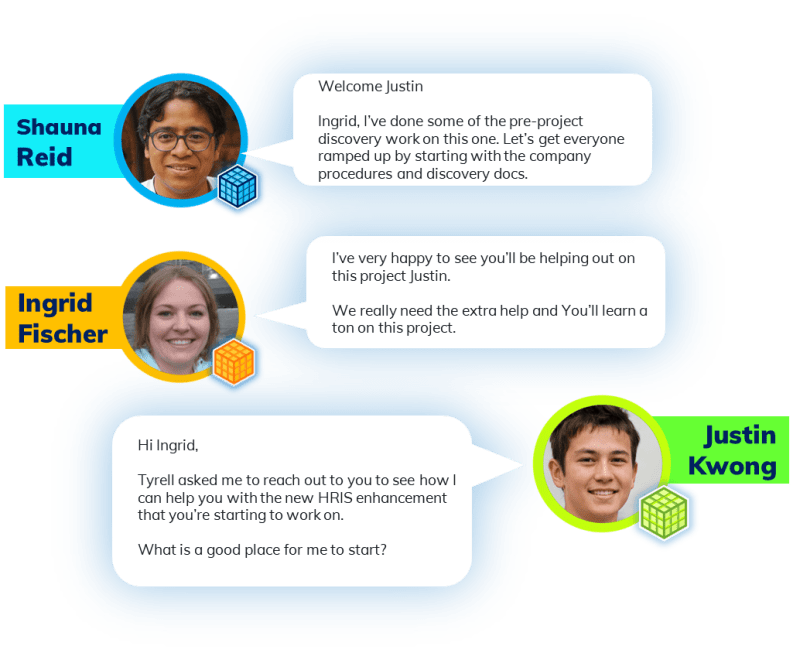
🔴 5 Live Workshops
These are structured sessions where we meet live as a class. We cover important course concepts and discuss how these concepts apply in real-world projects.
Instructors are also there to answer questions about the course content, provide help with the assignment, or help students overcome challenges they may be experiencing in their jobs.
🔴 3 Live Office Hours
These are unstructured “drop-in” sessions where students come to get extra help.
Instructors are available to answer questions about the course content, provide help with the assignment, or help students overcome challenges they may be experiencing in their jobs.
📺 5 Video Lessons
Students receive detailed video instructions covering important course concepts and providing detailed instructions on how to produce deliverables.
📚 10 Sample Documents
Students receive completed sample documents demonstrating how a senior business analyst would capture the outcome of their stakeholder analysis, current state analysis, feasibility analysis, and feasibility analysis (etc.)
📝 4 Assignments
You will produce a single cohesive deliverable containing the artefacts you produce in each of your 4 assignments spaced over our 12 weeks together.
The assignments follow the case study and contain perspectives from all stakeholders involved in the initiative.
Your job is to elicit the stakeholder's needs through process design, express stakeholder requirements via user stories, and to elaborate those user stories to the level of detail needed by your downstream stakeholders via use cases, wireframes, screen specifications, and data models.
👨🏫 Full Instructor Support
Your instructors are always available in the course space to answer your questions and help you overcome any challenges you're facing in the course.
During the course, instructors will also provide (optional) bonus materials for students who are looking to deepen their expertise in any of the skills or tools we cover.
The course is a mix of video releases and live sessions, with the added benefit of assignments that require you to produce deliverables that are reviewed by an experienced BA professional for feedback and grading

Firas Mahmoud
ERP Consultant, odoo Certified, eLearning Expert
What You'll Produce
You'll produce four core BA deliverables, each of which progressively elaborates the customer needs down to the level of detail required by your IT stakeholders.
FOBA™ leads you through a solution enhancement project led by Justin and Ingrid (two business analysts at Peterson & Baker) as they produce the deliverables that their upstream and downstream stakeholders require from them. Your assignments ask you to produce the same deliverables as you shadow the business analysts.
Assignment #1: Process Modeling
This assignment challenges you to apply your theoretical knowledge of process modeling
to a practical scenario. You will explore the current operational processes of Peterson &
Baker (P&B) and use your insights to develop a streamlined future state process model.
The aim is to identify inefficiencies and propose innovative solutions that align with P&B’s
strategic objectives and drive business transformation.
Assignment #2: User Stories and Use Cases
This assignment challenges you to apply your theoretical knowledge of use cases and user
stories to a practical scenario. You will elaborate on the user story assigned by Ingrid using the
use case elements in the provided video lessons and templates.
Assignment #3: Wireframe and Screen Specification
This assignment challenges you to apply your theoretical knowledge of wireframes and screen specifications to a practical scenario. You will elaborate on the user story assigned by Ingrid using the elements defined in the video lessons and templates.
Assignment #4: Data Models
This assignment challenges you to apply your theoretical knowledge of data modeling to a practical scenario. You will fill in the gaps in the data model provided by Ingrid using the elements defined in the lesson and the Visio data modeling template.

Stuart Hindemit
Certified Business Analyst Professional, Certified Salesforce Business Analyst
Course Benefits
FOBAᵀᴹ is the only case-based course allowing you to shadow business analysts through a project to see how foundational BA deliverables are produced.
Combine this teaching style with the latest industry standards, IIBA credits, and instructors with 40+ years of BA delivery experience, and you will gain practical, actionable skills that link theory and real-world application, making you job-ready from day one.
36 IIBA PD/CDU's

The FOBA certificate gives you the 36 IIBA professional development / continuing development units to apply or renew your CBAP.
Case Based Project
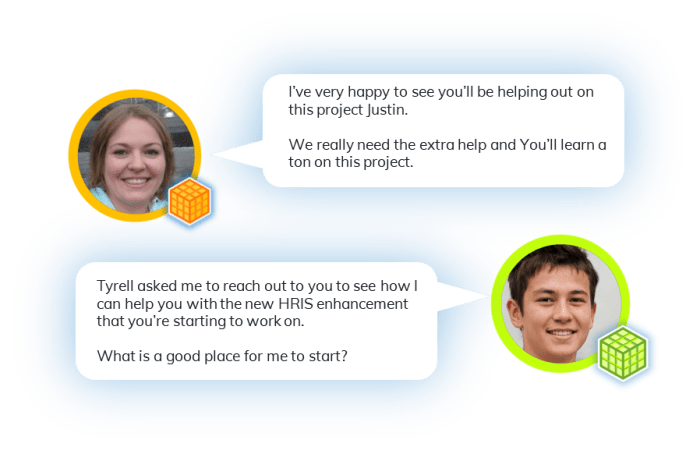
You'll follow Ingrid and Justin as they work on making a major product enhancement on their existing processes and systems.
Latest Standards
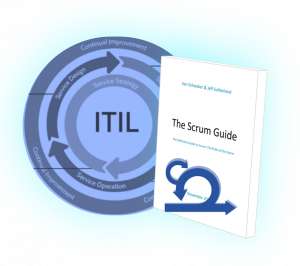
You will learn the latest standards starting with BABOK v3, ITSM/ITIL-based processes, Scrum-based processes, and UML-based modeling techniques.
Experienced Instructors

You will learn directly from experienced business analysts with 40+ years of experience across the pre-project, project, and post-project stages of an enterprise initiative.
The course is a mix of video releases and live sessions, with the added benefit of assignments that require you to produce deliverables that are reviewed by an experienced BA professional for feedback and grading

Emmanuel Megai, CAPM
Business Analyst, Project Management, Data Analyst, Business Intelligence
The ODESA™ Framework
Our framework teaches you how to execute the BA work on projects of all sizes and types.
The business analysis tasks required on a small project can look very different from the BA tasks you need to perform on a large project. Our ODESA™ Framework teaches you how to determine what tasks and deliverables you need to deliver to your team based on project size, and solution type.
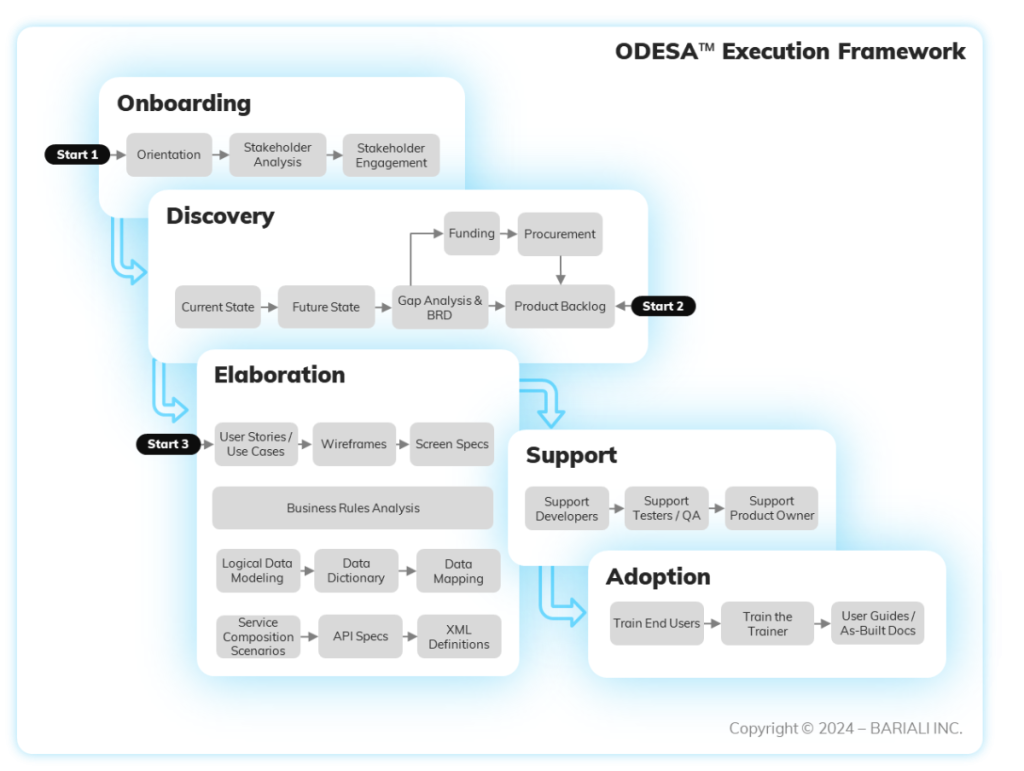
Onboarding
Onboarding is the critical first step in a digital transformation project, where you ensure that all stakeholders are aligned and prepared for the upcoming work that needs to be performed.
This stage involves determining who your key stakeholders are, introducing them to business analysis deliverables if required, setting expectations about your role, and establishing clear communication channels to make sure that everyone has the correct expectations set for the project.
Discovery
At the beginning of a digital transformation, the business analyst focuses on identifying and understanding the customer’s challenges and needs.
This involves conducting a thorough analysis of the current state, defining future state goals, and performing a GAP and feasibility analysis.
Elaboration
On every project, there comes a time when the business analyst needs to translate user-level needs into detailed specifications.
This is called elaboration and allows you as the business analyst to express the business need at a level of detail that your development and QA stakeholders need to build and test the software product.
Support
You will play a crucial role in assisting both upstream and downstream stakeholders during the build and test stages of the project.
They provide clarity on specifications to the Dev & QA teams and help customers navigate through the user acceptance testing (UAT) phase.
Adoptiopn
The final phases of a digital transformation focus on integrating the software product into the enterprise, and you might have an important role to play in this phase on some projects.
Here you might be helping your team members secure approvals needed to make product releases, to handle some communication, and train users on the new system.

Denver Martin, PMP
Business/Systems Analyst & Project Manager
Our 12-Week Plan
You will receive step-by-step guidance and support through theory and practice to build a portfolio of BA artifacts for your interviews.
FOBA blends a unique combination of video lessons, live sessions, and direct 1:1 mentorship to ensure you have a comprehensive learning experience.
| Week | HRIS Project Storyline | Course Events & Resources | Student Assignments | Student Goals |
|---|---|---|---|---|
| Week 0: Week Before Course Starts | Justin is assigned to Ingrid's project. | BA Primer Videos Released | None. | Review the pre-requisite course materials. |
| Week 1: Onboarding & Project Kickoff | Ingrid provides Justin with the company procedure for solution delivery. | Live Session #1 | None. | Learn how enterprises triage, prioritize, and deliver on customer requests (ITSM/ Agile) |
| Week 2: Process Mapping (Theory) | Ingrid provides Justin with a current state, and gap analysis document and asks him to produce a future state process model. | Process Modelling Video Released. | Assignment 1 | Create the process swim lanes, and add activities to their swim lanes. |
| Week 3: Process Mapping (Practical) | Justin provides his draft Future State to Ingrid for review. | Live Session #2 | None. | Add in dependencies, messaging, and remaining elements to create a future state model that is legible to business customers |
| Week 4: Product Backlog Management (Theory & Demo) | Ingrid provides Justin with an updated and refined version of the future state. | Agile & Backlogs Video Released. | None. | Learn the difference between Scrum and Kanban and see how product backlogs are prioritized. |
| Week 5: Use Cases & User Stories (Theory) | Ingrid assigns Justin a product backlog item to elaborate on. | Use Case & User Story Video Released. | Assignment 2 | Begin working on the use case/user story. |
| Week 6: Use Cases & User Stories (Practical) | Justin submits his draft of the use case and user story. | Live Session #3 | None. | Complete your draft of the user story/use case. |
| Week 7: Wireframes & Screen Specifications (Theory) | Ingrid requests Justin to elaborate further with a Wireframe and Screen Spec. | Wireframe & Screen Spec Video Released. | Assignment 3 | Begin working on the wireframe/screen specs. |
| Week 8: Wireframes & Screen Specifications (Practical) | Ingrid assigns Justin a task to update the existing data model. | Live Session #4 | None. | Complete your draft of the wireframe/screen specs. |
| Week 9: Data Modeling (Theory) | Justin makes the adjustments needed to the data model. | Data Modelling Video Released. | Assignment 4 | Begin working on the data model. |
| Week 10: Data Modeling (Practical) | Justin continues to fill in the details of the data model. |
Live Session #5 | None. | Complete your draft of the data model. |
| Week 11: Deliverables Support (Practical) | Justin submits his final deliverable containing all artifacts he's produced. | Student 1:1 support sessions. | Final Deliverables Due | Firm up all of your drafts artifacts into a final deliverable and submit before deadline. |
| Week 12: Full Course Recap & Next Steps | None. | Grades & Certificates Issued. | None. | Reinforce your understanding of the foundational skillset. |

Heather Dean
CBAP and MBA
Frequently Asked Questions (FAQ)
Course Content
FOBA Costs, Duration, and Effort
Certification Questions
Resumes, Jobs, and Other Questions
Refund Policy
You shouldn’t feel stuck when you sign up.
You're entitled to a full refund even after attending the first class. Yes, you can get onboarded, receive access to our platform and course materials, attend the first class, ask all your questions, and still be eligible for a refund, no questions asked.
No Question Asked
We take action on your refund as soon as we receive your request. We don't ask you why, or ask you to fill out a survey.
No questions asked, really.
No Complicated Hoops
We don't force you to jump through complicated hoops to get your refund.
You ask, and you receive.
All that we ask, is that you submit your refund request by the deadline specified in our refund policy.
The Next FOBA Session Will Be In Late 2026.
Signup to get notified when enrolment opens.
We will only send you materials related to business analysis. We never spam or sell your email address.

